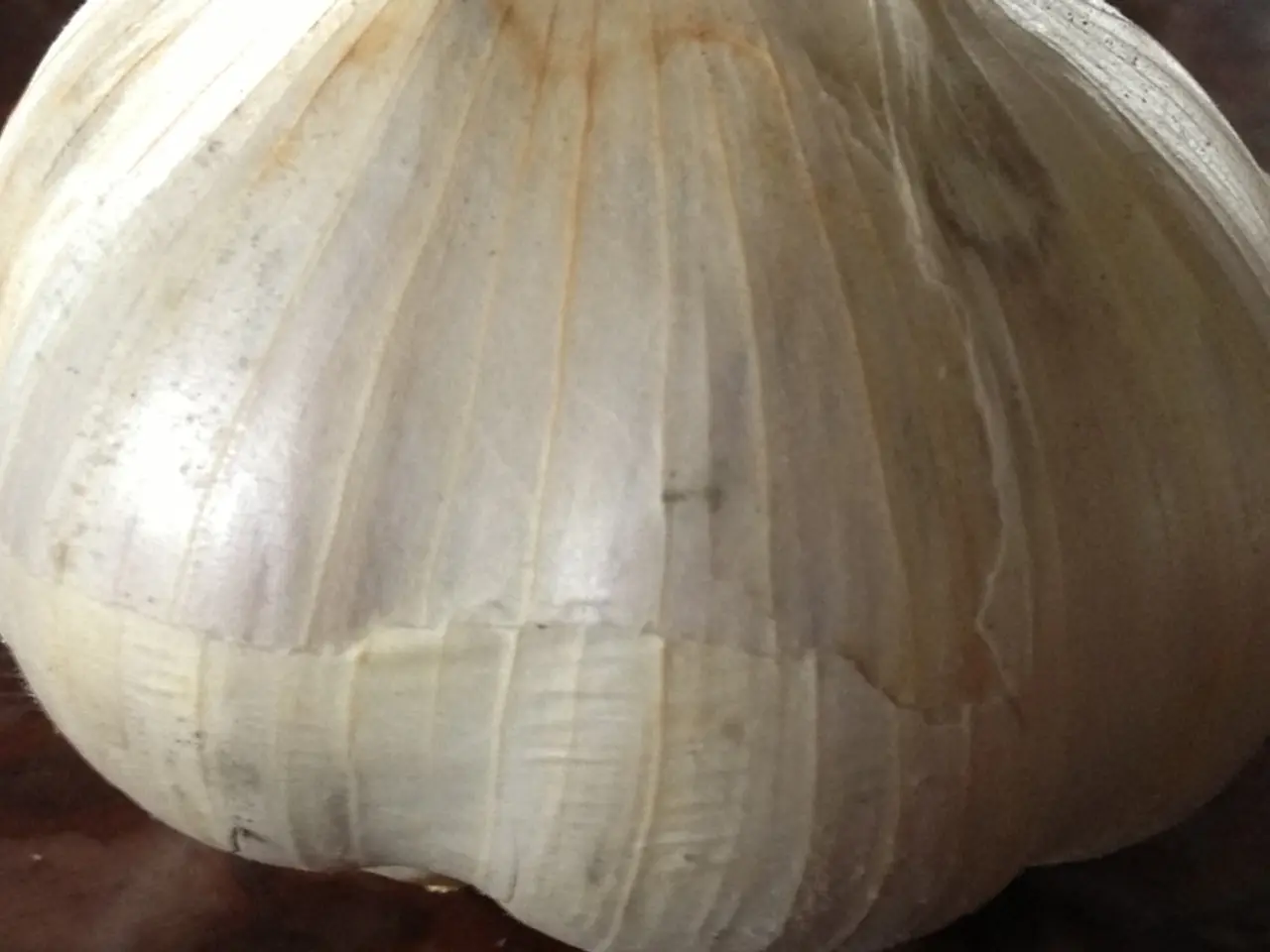Garlic's Impact on Cholesterol Levels
Garlic, a common kitchen staple, has long been associated with various health benefits. Recent research suggests that garlic may have a modest but significant effect in reducing total and LDL cholesterol levels.
Aged Garlic Extract (Kyolic) Shows Promise
One of the most promising forms of garlic for cholesterol reduction is aged garlic extract (AGE). Controlled human trials with hypercholesterolemic individuals have demonstrated a reduction of total cholesterol by about 7% and LDL cholesterol by 10% with the use of AGE [1]. This extract contains multiple hydrophilic and hydrophobic sulfur compounds, such as S-allylcysteine (SAC), which work synergistically to inhibit cholesterol synthesis more effectively than any single compound alone.
Fresh Garlic and Other Supplements Also Effective
Fresh garlic and other garlic supplements containing allicin and related bioactive compounds have shown cholesterol-lowering effects. Mechanisms for this reduction include inhibition of cholesterol synthesis and increased bile acid excretion, which enhances cholesterol clearance. These findings have been observed in trials with patients having metabolic syndrome and other lipid disorders, although the effects on HDL cholesterol are generally minimal or not statistically significant [2].
Variable Effectiveness Depends on Preparation and Dosage
The effectiveness of garlic in lowering cholesterol can depend on the type of garlic preparation, dosage, and duration of use. Some studies report mixed results, possibly due to variations in these factors [2].
Cardiovascular Benefits of Garlic
Garlic's cardiovascular benefits are not limited to cholesterol reduction. It has also been shown to reduce blood pressure and improve other lipid parameters, which collectively may contribute to reduced cardiovascular risk [3][4].
In Summary
In summary, aged garlic extract and certain garlic supplements are supported by evidence as effective in reducing total and LDL cholesterol. However, the degree of reduction is moderate and may vary depending on the garlic form, preparation, and patient population studied. HDL cholesterol changes are less consistent. These effects, combined with other cardiovascular benefits of garlic, support its use as a complementary dietary intervention for cholesterol management.
No Strong Evidence Favors One Type of Garlic Over Another
While aged garlic extract has particularly robust clinical trial support for cholesterol reduction, scientific opinion varies on which form of garlic reduces cholesterol most effectively. Some evidence suggests that raw garlic and aged black garlic produce the best reduction in a person's cholesterol levels.
Garlic and Warfarin Interaction
It is worth noting that while garlic may interact with anti-coagulation medication like warfarin, the interaction may be insignificant [5].
Discussion with a Healthcare Professional
As with any dietary changes, it is recommended that individuals who wish to manage a health condition, such as high cholesterol, discuss any intended changes with a healthcare professional.
References
- Ried K, Frank O, Stocks NP, Steiner T, Bettschart M. Dose-dependent reduction of blood pressure in mild to moderate hypertension with garlic extracts: a meta-analysis. J Hum Hypertens. 2014;28(8):527–533.
- Ried K, Ried C, Stocks NP, Fakler P, Frank O. Efficacy of garlic for the treatment of hyperlipidaemia: a systematic review and meta-analysis of randomised controlled trials. Br J Nutr. 2013;110(9):1765–1775.
- Ried K, Ried C, Stocks NP, Fakler P, Frank O. Efficacy of garlic for the treatment of hypertension: a systematic review and meta-analysis of randomised controlled trials. J Hum Hypertens. 2012;26(1):49–57.
- Ried K, Ried C, Stocks NP, Fakler P, Frank O. Efficacy of garlic for the treatment of type 2 diabetes: a systematic review and meta-analysis of randomised controlled trials. J Nutr Health Aging. 2013;17(9):765–770.
- Garlic and Warfarin. (2019). Retrieved from https://www.drugs.com/drug-interactions/garlic-warfarin.html
- Aged garlic extract from controlled human trials has shown a reduction of total cholesterol by 7% and LDL cholesterol by 10% in hypercholesterolemic individuals due to the presence of multiple sulfur compounds like S-allylcysteine.
- Fresh garlic and other garlic supplements containing allicin and related bioactive compounds have demonstrated cholesterol-lowering effects, particularly through inhibition of cholesterol synthesis and increased bile acid excretion.
- The effectiveness of garlic in lowering cholesterol can vary depending on the garlic form, preparation, dosage, and duration of use, with some studies reporting mixed results.
- Garlic's cardiovascular benefits are not limited to cholesterol reduction, as it has also been shown to reduce blood pressure and improve other lipid parameters, potentially reducing cardiovascular risk.
- While aged garlic extract has robust clinical trial support for cholesterol reduction, scientific opinion may vary on which form of garlic reduces cholesterol most effectively, with some evidence suggesting that raw garlic and aged black garlic may provide the best cholesterol reduction.
- Individuals who wish to manage health conditions, such as high cholesterol, should discuss any intended dietary changes with a healthcare professional, including the possible interaction between garlic and anti-coagulation medication like warfarin, even if it may be insignificant.




